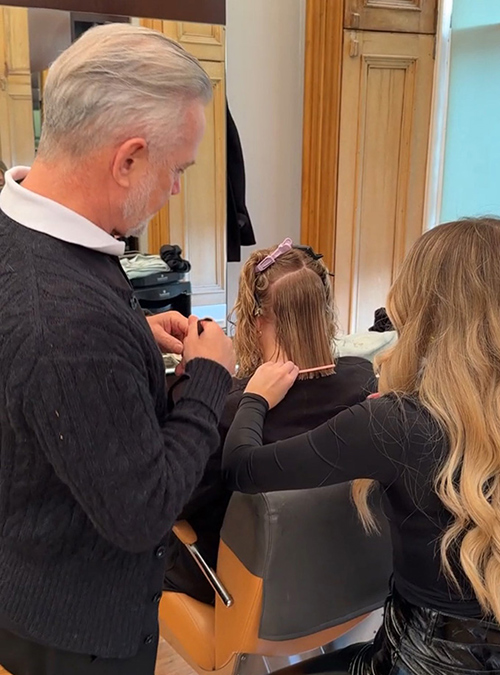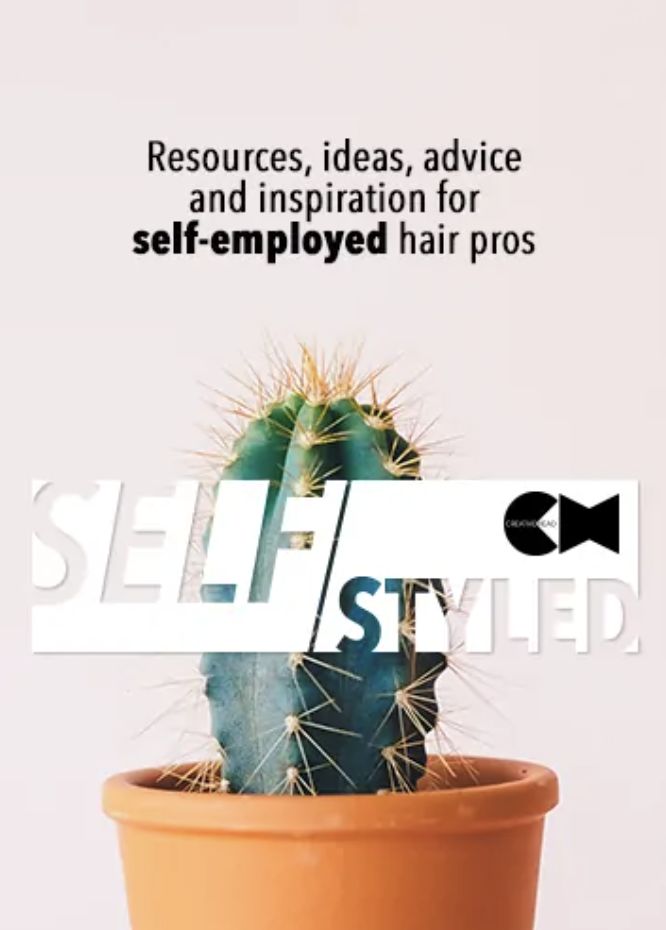APPRENTICES ARE A RARE BREED – THIS IS HOW YOU FIND THEM
You want to train tomorrow’s talent, but new blood is hard to find. Salon owners making it work for them share their seven secrets.

Brian MacMillan, F&M Hairdressing, Glasgow. Justin Mackland, Ishoka, Aberdeen. Josh Miller, Charlie Miller, Edinburgh
If you’re a salon employer, you know just how tough it is to entice apprentices into hairdressing and barbering, with apprenticeship starts at a scary low. So, just how can you attract the next generation? With National Careers Week and Scottish Apprenticeship Week hitting this week, we’ve teamed up with The Industry – the CIC showcasing the brilliant opportunities that careers in hairdressing can bring – to help you find those talents of tomorrow.
Speak to them where they live – on social media
“Before applying for an apprenticeship, Gen Z’s will likely scope a hairdressing business out first on. social media, so it’s more important than ever to be active and current and on as many platforms as possible,” explains Josh Miller, managing director at Charlie Miller salons in Edinburgh. “Social media is the shop window to reach young people and helps them immediately see who we are as a company, what we believe in and what career opportunities are available. We try to make it easy for someone who is interested to get in touch.”
Show off how much fun you’re having!
“We live in a world where everyone is on their phones, so by creating fun, effective content you will attract the up-and-coming into your salon,” says Justin Mackland, stylist at Ishoka in Aberdeen. “An industry that is not familiar is daunting, so ensure you really grab the essence of how amazing your team are and how fantastic the salon is.”
Get in with your local schools… and be approachable
“We’re aware that being a luxury salon can be intimidating to teens; getting out into schools and becoming familiar figures in the community can really help to bridge that. Making connections early on and being open and honest about what to expect has garnered lots of interest,” says Josh Miller. “We are building a strong presence in local schools, and currently have a relationship with DYW (Developing the Young Workforce) in Edinburgh & The Lothians. This enables us to talk directly to interested pupils about pathways into the industry.”

Phillip Bell, Ishoka, Aberdeen

Jenni Gibb, Charlie Miller, Edinburgh
Share the success stories – so potential recruits can see what’s possible
“We ensure that we shout about the success stories we pride ourselves on,” says Brian MacMillan of F&M Hairdressing in Glasgow. “It’s important for us to continue to showcase our offerings, the industry opportunities and the different paths available to attract a new generation of apprentices.”
Know what makes them tick… and support their journey
“As a mentor, ensuring your apprentices are up to date with where they are at with their training is essential,” says Philip Bell, creative director at Ishoka. “Spend time with your apprentices and find out what makes them tick in hairdressing.”
The next gen wants to know who they’re working for – be transparent
“These days, potential employees want to know about your values, who you are as a company, and what you stand for,” says Jenni Gibb, wellbeing & development manager at Charlie Miller salons. “They’re asking things like: “Is there a mental health policy? What is being done to reduce the carbon footprint? What’s the workplace wellbeing like?”
Not everyone learns the same – show you’re cool with that!
“We are currently training our management on neurodivergence awareness, to give as much support to our neurodivergent staff as possible,” says Jenni Gibb. “The emphasis is on ‘differences’ not ‘difficulties’. It may mean we need to change our approach when teaching, or that our employee may use out-of-the-box thinking when they learn. Coupled with this, we have an in-house mental health support team, who are available to all staff.”
Related
IHF In Search For Educators
Body is opening up educator opportunities to its members and their teams
JOICO Color Talent Awards Reveal Finalists
Marc Antoni stylists among the line-up
HairCon Now Powered By Fresha
Hair and barbering event announces revolutionary new five-year premier partnership.










